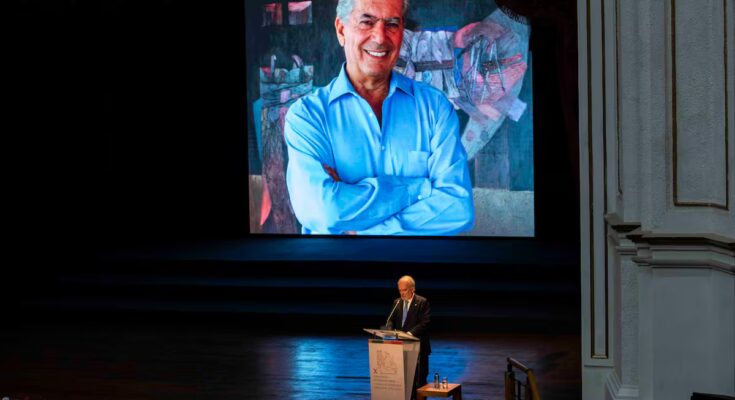Mario Vargas Llosa lived just a year in Arequipa, his homeland, but never stopped claiming the so-called white city for its colonial architecture and its cultural and political tradition. The eleventh edition of the Hay Festival, which will be held from 6 to 9 November in the birthplace of the Nobel Prize winner, who passed away this year, takes up the baton and has planned a complex program of events to honor and reflect on his figure from different angles. Vargas Llosa the writer, politician, intellectual and inhabitant of Arequipa. In addition to the monographs on the Nobel Prize, the festival shows its transversal spirit and covers a wide range of cultural, political and scientific themes with a very current anchoring. “Celebrating a festival of literature and ideas in such a complex world is much more than a cultural act: it is an act of resistance, a democratic necessity and a collective form of hope,” said Cristina Fuentes La Roche, international director of the festival, which in Latin America also has branches in Cartagena (Colombia) and Querétaro (Mexico) at the opening on Thursday.
Vargas Llosa will be very present with three tables, as well as exhibitions and presentations of books that encompass his literary figure and his political thought. The first table will feature Héctor Abad Faciolince, Patricia del Río and Carlos Granés, who will focus their conversation on his work and the legacy he leaves. Three figures very close to the writer will also celebrate, such as Verónica Ramírez, who worked alongside him, and Juan Gabriel Vásquez, considered one of his “literary heirs”. Another dear friend of his, Petro Cateriano, will present his book, Vargas Llosa, his other great passion. Catariano will speak with EL PAÍS journalist David Marcial Pérez about the political biography forged from years of conversations between the two friends. A journey through his ideological trajectory, from his communist youth, through the break with the Cuban Revolution, to his transition to liberalism and his failed presidential candidacy.
The book will also be presented The word is fire. Mario Vargas Llosa at the Hay Festivalpublished together with the Fund for Economic Culture. The title refers to a speech by Mario Vargas Llosa, given in 1967, and collects his conversations in There is the Festival from half the world. The sample will also be presented Varguitas, the truth of lieswith photographs by Morgana Vargas Llosa. In addition to these three conversations, Alonso Cueto will be present Mario Vargas Llosa. words in the worlda personal text, written by a friend, a hymn to the life, work and influence of the writer.
Important Latin American authors such as Pilar Quintana or Juan Gabriel Vásquez, from Colombia, as well as Faciolince himself, will present their new works. Quintana returns to the Colombian Pacific with black night. Vásquez recreates the life of Feliza Bursztyn, a woman ahead of her time, in Happy’s names. Alberto Fuguet, from Chile, presents his fifth novel, Missingwhile Fernanda Trías, Uruguay, will talk about her new work, the mountain of furies. And the Mexican Guillermo Arriaga will review his new polyphonic novel, The man.
Best-selling Argentine philosopher, Dario Sztajnszrajber, will reflect on Romantic normativeness with love is impossiblequestioning figures like the significant other and rethinking heartbreak as part of wishing for the impossible. The Spanish Laura G. de Rivera will speak Slaves of the algorithman essay on how networks turn us professionals into puppets. Reflections on climate change will also have great prominence. John Vaillant (USA/Canada), winner of the Baillie Gifford Award for Fire timewill detail the terrible fire that devastated Fort McMurray. The reflections will also navigate from the Marañón River to Andean ecohydrology, with Fabian Drenkhan and Jhan Carlo Espinoza, direct witnesses of how Peruvian ecosystems are changing. El PAÍS will interview, in addition to Cateriano, the Mexican journalist Ricardo Raphael, on Friday afternoon, and Faciolince and Cueto, on Saturday evening.



